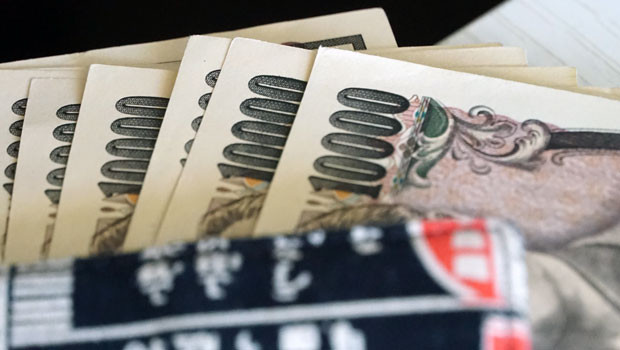Asia report: Stocks mostly higher as BoJ holds policy steady

Stock markets were mostly higher in Asia on Thursday, as the Bank of Japan stood pat on monetary policy, and China’s president indicated a massive new effort in constructing infrastructure.
In Japan, the Nikkei 225 was up 1.75% at 26,847.90, with the benchmark’s major components painting a mixed picture.
Uniqlo owner Fast Retailing lost 1.34%, while robotics specialist Fanuc jumped 3.28% and tech investing giant SoftBank Group added 1.68%.
The broader Topix index advanced 2.09% by the end of trading in Tokyo, closing at 1,899.62.
Japan’s central bank held its policy settings steady in its latest decision during the day, as was widely expected by markets.
The Bank of Japan essentially bolstered its super-easy approach to monetary policy, keeping the overnight interest rate at -0.1%, and its daily bond purchasing target at a 0.25% yield.
That led to a further slide for the yen, which had already been tumbling against the dollar in recent weeks, and was last 1.66% weaker at JPY 130.56.
“No one expected a rate hike at today’s meeting, but chatter about the yen had grown to a roar as the currency surged from around 118 to the dollar at the last meeting, to within touching distance of 130 in recent weeks,” said Craig Botham at Pantheon Macroeconomics.
“Governor Kuroda had even warned recently that the move was sharp enough to hurt businesses, a marked shift to his prior messaging that a weaker yen was an economic positive.
“With this in mind, a change to yield curve control seemed possible, but it was not to be.”
Botham said not only did the BoJ’s statement pledge to continue purchasing an unlimited amount of Japanese government bonds at 0.25%, but policymakers actually doubled down, with the bank now set to buy every business day, in a “sign of strong commitment” to capping yields.
“The yen is 1.3% weaker against the dollar on the day, breaking through 130, at the time of writing.”
In data from Japan, retail sales were up more than anticipated in March, rising 0.9% year-on-year, against Reuters-polled expectations for a 0.4% improvement.
On the mainland, the Shanghai Composite was ahead 0.58% at 2,975.48, while the smaller, technology-centric Shenzhen Composite lost 0.71% to 1.808.47.
China’s president Xi Jinping said on Thursday there needed to be an “all-out” approach to building infrastructure, as the country faced the economic and social issues arising from its worst Covid-19 outbreak since the start of the pandemic.
Its largest city Shanghai remained locked down after almost a month, while fears the capital Beijing would soon face the same treatment were growing as mass testing continued there.
South Korea’s Kospi was 1.08% firmer at 2,667.49, while the Hang Seng Index in Hong Kong was 1.65% higher at 20,276.17.
The blue-chip technology stocks were mixed in Seoul, with Samsung Electronics down 0.31%, while SK Hynix gained 0.92%.
Oil prices were higher as the region went to bed, with Brent crude futures last up 0.27% on ICE at $105.60 per barrel, and the West Texas Intermediate quote on NYMEX advancing 0.29% to $102.32.
In Australia, the S&P/ASX 200 was up 1.32% at 7,356.90, while across the Tasman Sea, New Zealand’s S&P/NZX 50 was ahead 1.28% at 11,875.96.
The down under dollars were mixed against the greenback, with the Aussie last 0.14% stronger at AUD 1.4014, while the Kiwi weakened 0.44% to NZD 1.5354.